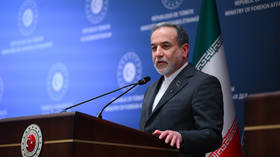“Honor killings” of Middle Eastern women leave them fighting for rights
Every year, over 5000 women are killed in "honor killings" in the Middle East, according to UN estimates. The extreme tradition is practiced in some Muslim societies if a woman is accused of bringing shame to her family.
That could mean anything from refusing an arranged marriage, to being the victim of sexual assault.
The murder of a young Kurdish girl at the hands of hundreds of men in Northern Iraq was casually captured by a cell phone camera. In this case, it is what is tragically known as an honor killing, 17-year old Du’a Khalil Aswad, who is Yezidi, was stoned to death for falling in love with a Muslim boy. While murder is the obvious extreme, violence against women is embedded deep within the Kurdish culture and it can take many forms.
“Women are being harassed, they are insulted, they are heartbroken, and that might be more than killing. If women are insulted, then a sensitive woman might feel as if she is killed every day, and especially in Middle Eastern societies women are insulted in different forms with abusive language. Me myself, I believe that it is bigger than killing,” says Iraqi teacher and lawyer Pekin Meeran Ismail.
As Northern Iraq starts to modernize, there are more groups willing to step up and champion the cause for women’s rights, and even the government is starting to take proactive steps in combating the problem.
“In 2003, we passed a law in the Kurdish Parliament that deals with those committing honor killings as homicide, and there are people who were convicted on these charges. As a result, the rate of such acts decreased sharply and this is obvious in the reports of the Ministry of Health and the Ministry of the Interior. Unfortunately, society’s view of women is still that they are weaker, which has affected women’s role in the family,” says researcher of women affairs, Mrs. Qaradaghi.
Recent research has shown that there is a direct relationship between the level of education in an area and the amount of violence there is against women there. So now there is a concerted effort to go out to the remote villages in Iraqi Kurdistan and inform people about women’s rights.
“Raising the level of awareness makes women understand their rights and suffer less from violence. We have found that more than 70 per cent of the women that have encountered violence are illiterate. Also, more than 90 per cent of those who are committing violence against women are illiterate. As a result, we conclude that raising awareness leads to lessening violence,” Mrs. Qaradaghi says.
And while there is still a long ways to go, before Kurdistan meets international standards of equality, recent elections and the promise of a new government bring hope that change on a national scale may be coming soon, hopefully preventing mob killings like that of Du’a Khalil Aswad from happening in the future.












